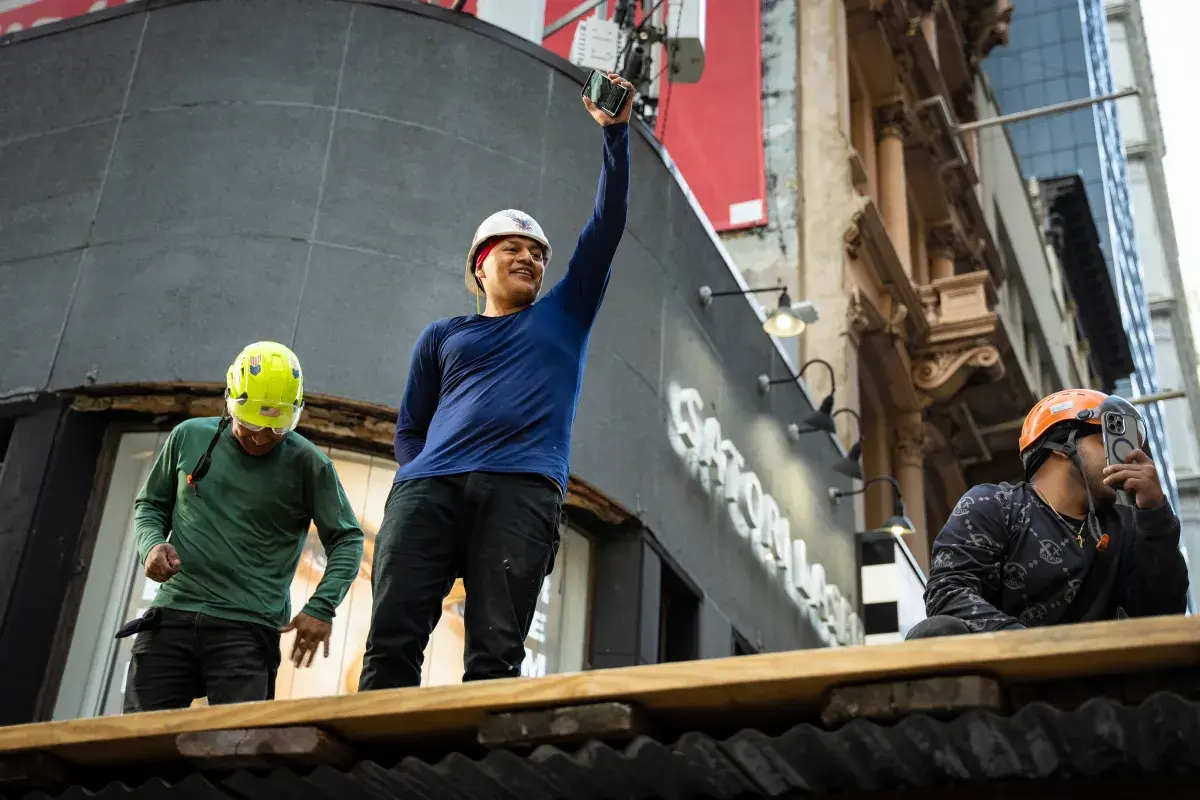
A new bill introduced in Congress aims to expand temporary work opportunities for foreign laborers in nonagricultural sectors, allowing employers to hire international workers when domestic labor is unavailable.
Rep. Lloyd Smucker (R-PA-11) has introduced the Essential Workers for Economic Advancement Act, which is aimed at addressing labor shortages across key industries.
Why It Matters
The bill proposes a new H-2C nonimmigrant visa, similar to the H-2B seasonal worker program, to address labor shortages in essential industries. The visa program targets positions that have remained unfilled for three consecutive months and in regions where unemployment is 7.9% or lower.
What To Know
“The Essential Workers for Economic Advancement Act is a commonsense, bipartisan, and market-driven solution that addresses workforce shortages in key industries while ensuring American workers are prioritized,” Rep. Smucker said in a news release. “This guest worker program will help employers fill positions that have remained vacant for months and grow our economy.”
The H-2C visa would be valid for three years, with two potential three-year renewals. The first year would offer 65,000 visas, with future availability ranging between 45,000 and 85,000, depending on economic conditions.
To be eligible for H-2C status, applicants must receive a job offer from an employer registered under the Essential Workers for Economic Advancement program, pass a criminal and national security background check, and may not bring family members to the U.S., a restriction designed to prevent chain migration.
Applicants are also barred if they come from countries designated by the Secretary of State as supporters of international terrorism.
Industry leaders have welcomed the proposal.
“Small business owners across a range of industries have told us that they are struggling to expand and even maintain their business operations due to labor shortages,” said David Chase, vice president of the Small Business Majority, which leads the national small business coalition, the Secure Growth Initiative, said in a statement shared with Newsweek.
“Legislation like the Essential Workers for Economic Advancement Act would go a long way toward helping small firms maintain a trajectory of success well into the future by increasing the labor pool for many types of businesses,” Chase added.
“The U.S. is in a demographic stagnation. We simply are not producing native-born workers to fill all the jobs going wanting,” Frank Knapp Jr, managing director of the Secure Growth Initiative, told Newsweek.
The legislation has drawn bipartisan support in Congress. Cosponsors include Reps. Henry Cuellar (D-TX-28), Tom Suozzi (D-NY-03), Maria Elvira Salazar (R-FL-27), Juan Ciscomani (R-AZ-06), Mike Kelly (R-PA-16), Mark Amodei (R-NV-02), Andy Harris (R-MD-01), Don Davis (D-NC-01), Rich McCormick (R-GA-07), and Mike Kennedy (R-UT-03).
What People Are Saying
Matt Foster, Vice President of the South Carolina Hispanic Chamber of Commerce and Board member of the Secure Growth Initiative, said in a statement. “This new visa program, which responsibly allows low-skilled individuals to come to the U.S., is important especially for Hispanic business owners who want to grow their businesses but can’t find workers.”
Frank Knapp Jr, managing director of the Secure Growth Initiative, told Newsweek: “The Essential Workers for Economic Advancement Act addresses our critical shortage of low-skilled, non-agricultural workers with a new H-2C nonimmigrant classification while protecting American workers. Members of Congress on both sides of the aisle want sensible immigration policy like this one that will grow, not shrink, our local economies.”
American Hotel and Lodging Association president and CEO Rosanna Maietta said in a press release: “America’s hotel industry proudly welcomes millions of guests each year, creating unforgettable experiences and supporting local economies. But finding enough workers to fill job openings in the industry has become a growing challenge. The Essential Workers for Economic Advancement Act offers a vital, bipartisan solution—creating a seasonal H-2C nonimmigrant visa program to help hotels and hospitality businesses meet staffing needs during high-demand times. This commonsense legislation supports small businesses, strengthens our workforce, and ensures we can continue delivering world-class service. We’re grateful to Representative Smucker for his leadership and commitment to the hospitality industry.”
Amanda Brill at Brill Immigration told Newsweek: With respect to the immigration proposal “creating a seasonal H-2C nonimmigrant visa program to help hotels and hospitality businesses meet staffing needs during high-demand times”, this already exists in the form of the H-2B seasonal workers visas. When I was working in Boston, I handled many of these for seasonal workers on Cape Cod in the summer and the ski resorts of Vermont in the winter. The issue is that H-2Bs are subject to the congressionally mandated cap of 66,000 visas annually which, clearly from this proposal, cannot meet the demands of American employers. Increasing training and upskilling American workers is a commendable goal for this proposed legislation, but it would seem that this shortage in workers can be solved with an increase in H-2B visa numbers in the meantime rather than creating a redundant category of visas.
What Happens Next
The legislation is currently pending in the GOP-controlled House of Representatives.



